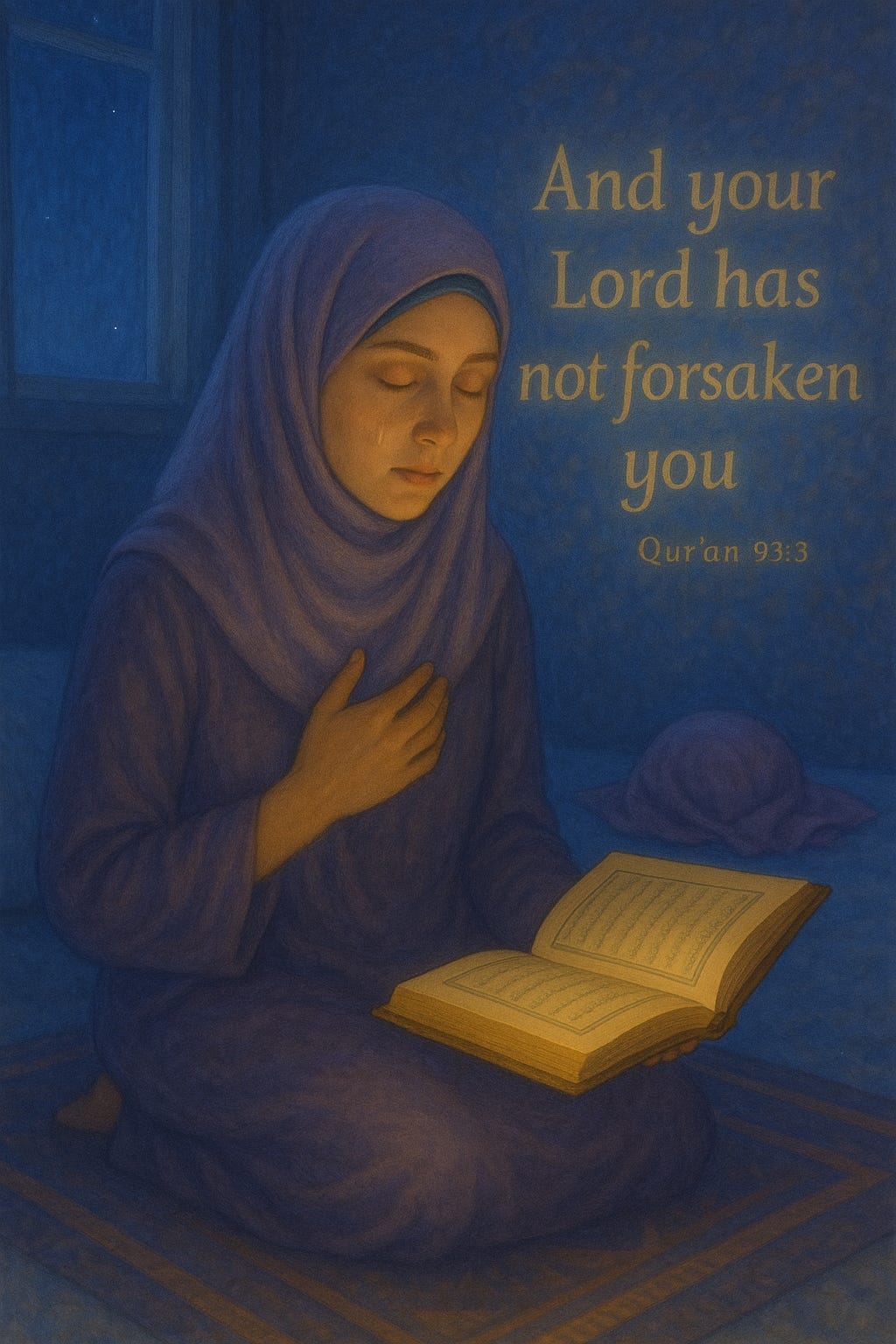The Silent Revert: A Journey from Inheritance to Intimacy with Faith
How One Girl Rediscovered Islam Beyond Rituals, Expectations, and Silence
Layla was born into Islam.
From the outside, she was everything a “good Muslim girl” was supposed to be. She learned how to pray by seven, wore her hijab by nine, and could recite Surahs (chapters of the Quran) by heart long before she could understand their meaning. Her family praised her. The aunties smiled at her. The community approved.
But inside, she felt like a stranger to the very faith she was raised in.
Islam felt more like a script than a sanctuary.
It came in checklists and commands: Don’t do this. Wear that. Pray now. Smile politely. Don’t question. Just obey.
So she did.
She prayed because she was told to. She dressed modestly because she was supposed to. She memorised verses like rehearsed lines — performed, but never lived.
She knew how to do Islam.
But she didn’t know how to feel it.
As Layla grew older, the noise around her got louder. The world started asking her questions — and eventually, so did she.
She made mistakes. She drifted.
And when she felt lost, the only advice she heard was, “Just pray more.”
But one night, everything broke.
She sat on her bed, the silence deafening, her heart heavy and hollow. The prayer mat in the corner looked more like a stranger than a refuge. And for the first time, she didn’t speak to Allah with memorised supplications. She just whispered with truth:
“Ya Allah… I don’t know who I am anymore. But I want to know You. Really know You.”
That was the turning point.
Something subtle shifted inside her.
She stopped living Islam out of obligation and started seeking it with sincerity. She picked up the Quran — not because she had to, but because she wanted to. And when she read it, the verses didn’t feel foreign anymore. They felt familiar. Like letters sent from a home she had forgotten she came from.
She cried when she read about Prophet Yunus in the belly of the whale — because she, too, had known darkness.
She saw herself in Maryam’s loneliness, in the aching silence of her seclusion.
She clung to the verse:
“And your Lord has not forsaken you.” (Quran, Surah ad-Dhuhaa, Chapter 93, The Morning Hours, Verse 3)
Layla didn’t abandon Islam — she finally embraced it.
She unlearned shame. She let herself ask questions. She allowed herself to be real.
And slowly, Islam became something she wasn’t just born into — it became something she chose.
One night, in Sujood (prostration), the tears came.
Not from guilt. Not from fear.
But from love.
“Ya Allah… thank You for letting me find You, even when I didn’t know I was lost.”
Some souls are born into Islam, but still need to revert — not in name, but in heart.
Layla had found her way home.
Not to culture. Not to people’s expectations.
But to Allah.



Encouraging and inspiring message for many people who were raised in cultural Islam that lacked the true love, compassion and submission to the Lord of all the worlds.